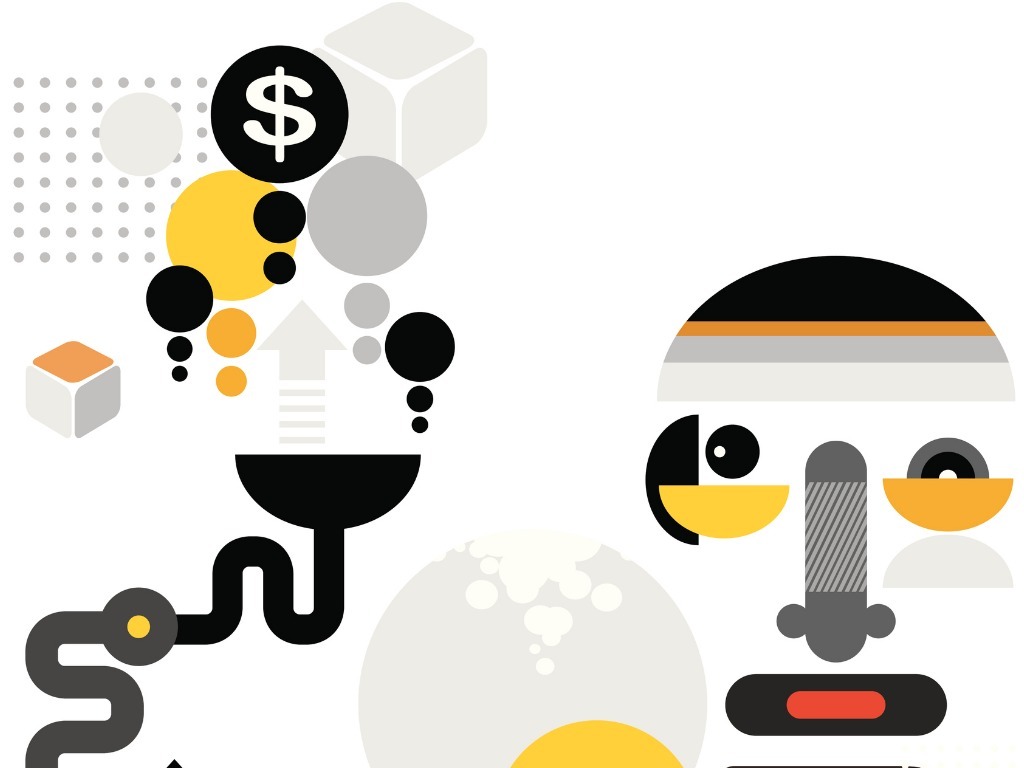
It is always our decision to spend or not to spend says Cathy Harris
Standing in the coffee queue one morning I bumped into a fellow assistant, who looked distraught and sad. Out of concern, I asked Jemma (not her real name) “why the long face on such a beautiful morning?” “Oh Cathy”, she said, “life just constantly chucks not just lemons, but huge big watermelons my way, and I just don’t have the strength nor the energy to deal with all the stress. If it’s not children, it’s money; if it’s not money, it’s the unemployed husband. I just can’t take it anymore, and then I come to work, and all the demands placed on me here … Cathy I just feel overwhelmed!” Jemma literally broke down and sobbed her heart out. People in the queue were both puzzled and concerned.
I don’t care what anyone says, but we all have crosses to bear, stories to tell and challenges to face. Some of us have been there, the wounds are still ripe, the anxiety real, and for those going through these anxieties and challenges of life, the storm does have an end and the dust can settle. I sat Jemma down with her coffee and we chatted for about an hour. One thing was very clear; Jemma’s finances were in distress, which led to all other aspects of her life and relationships being in distress too.
Financial Stress
Financial stress affects every single fibre of your being. It affects your work performance because you are constantly distracted by your anxiety about not having enough money or being harassed by unwanted phone calls from debt collectors. It prevents you from focusing on things that need to be done urgently in the office; it distracts you while you are meant to be doing minutes or taking notes. You start making small silly mistakes, and sometimes your behavior is out of character. It eats at you like a pariah; it prevents you from having a healthy lifestyle because you can’t afford it and you become resentful, jealous, and sour because others appear to be having fun, and you aren’t. It affects your psyche, and allows depression to take a grip, it affects your attitude towards others; it can hurt marriages and destroy relationships with friends. It tears down the inside of your soul until you reach a very dark place of what feels like the bottom of the darkest pit, a place where suddenly it is silent and dark, and where you have the opportunity to cling onto a little spark of hope; a light to guide you. At that point, you need to acknowledge that the decisions you make going forward will either ignite the need to survive no matter what, or the need to lie down and hope it will end.
I have been down that dark tunnel, where hope was just a word; but the need to be responsible for my family of nine was more important than laying down to die. It was in this dark space, in the middle of this storm, that I knew it was up to me. Only I could make myself happy, only I could look up because I chose to, only I could say thank you God for the blessings I already have and be grateful that I still have a chance to exist and be more than productive in this life. When I was in my own dark pit, with nowhere to turn, I turned and thanked God for a chance to rise. I knew it would not be easy. It was a long path of learning and discovering, a time for reinventing myself to be a better human being, a better wife, mother and nana. One day I will write of my personal experience, but for the sake of helping each of you who are reading this and finding yourselves in this space, there is certainly a way out.
You are not alone
Just to give you “comfort” that you are not the only one facing the challenges of financial strain, I did some research and found that the following countries have the most indebted household in relation to the size of their economy (GDP):
Switzerland, Denmark, Australia, Netherlands, Canada, Norway, South Korea, United Kingdom, Sweden, USA, Portugal, Thailand, Finland, Spain, Hong Kong, Japan, Greece, Singapore, Belgium, Luxembourg, Ireland, France, Germany, Austria, China, Italy, Poland, South Africa, Czech Republic.
It appears that after discovering how easy it was to get credit in the mid-1990s, the whole world went bonkers!
The worst part about this list is that those at the top end are countries where their central banking policy rates are very low, and mortgage rates super, super low. The problem is that when interest rates increase, even by a fraction, household debt balloons out of proportion. Economic trends differ from country to country but we all know that when interest rates rise, so does the price of housing, food, and fuel; organizations restructure, and retrenchments take place.
Although we can attribute some blame on the economy for our situations, it is still always our decision to spend or not to spend. Many of us buy things we don’t need. We have become a “throw-away” society, where instead of fixing something we buy a new thing to replace it, instead of buying food on a weekly basis, we buy monthly and eat like kings for the first 2 weeks of the month, and then suffer till payday. Many of us have not learnt how to budget and stick to it, nor to save. I am talking not just about saving money but things like household utilities, food, fuel, kids’ wants, and everyday things we use, and then we wonder why we land ourselves up in a place that we don’t want to let others know we are in! Many of you can relate, right?
It is hard work pretending that all is good, it is hard work pretending that you are doing great when it is just not the case. Pride holds us back from being real with ourselves, but you reach that point when you know you just have to dig yourself out of this mess whatever it takes. A quote I read by Rick Warren goes like this “humility is not about thinking less about yourself, it is thinking of yourself less.”
Changing your mindset
It must start with intent and purpose and you have to re-train your brain to think differently about how to deal with your current situation; you need to focus on changing the way you think about money. It is not easy, simply because there are old habits that are engraved in our neural pathways, those little habits that get us in trouble. Habits like grabbing a snack while in the queue at the supermarket, or feeling you have to reward yourself constantly because it’s your money!
You must make the mental change from a credit lifestyle to living within my means lifestyle. It will take time and persistence to change old habits.
Ask for professional help
Explore opportunities available to you in the form of Family Credit Management outlets, debt counselling and debt help relief schemes. Don’t be scared to speak to your bank; not for more money (borrowing money to pay debt is not the right option), but to negotiate rearranging your payments to make them more affordable for you. It will be a question of putting your pride in your pocket and being humble. Know that you are not the first, nor the last, person to ask for help. Once you are on a program, like the ones mentioned above, you must stick to it. No diversions, no easy ways out, just pure commitment. Consider the fact that it took you years to get to this point, and it may take a few more to get back on track.
Review your lifestyle
Being on a financial help and fitness program does not mean you are poor, rather you need to feel accountable for the situation you are in and be responsible with how you work with money. In many cases, there are family members that are relying on you. Do the right thing. Lifestyle changes will mean planning your routes to save on fuel, using your vehicle only when needed, switching off lights and air-conditioning if you are not in the room or at home, taking a shower instead of bathing in a tub filled to the brim, hosting your children and family events at your home or in a park where guests can bring a plate of eats, fixing things that are broken instead of tossing them out and making your own lunch pack for work as opposed to purchasing. There are many ways to skin a cat. The only pride you will have at the end of the storm is that you have survived, that you are a survivor, and you did it!
Change shopping habits
In the past, I am sure plastic was your pal. The first thing to do is make a copy of all your store and credit cards (just the front so you know the account number), and then cut them up and toss them out! The most empowering feeling is using cash you actually have, to pay for purchases. Before shopping for groceries prepare a meal planner for the week (or month), do a stock take of what items you still have, and then write up your grocery list. Place all luxury items at the end of the list so that when you go shopping on the day you have your calculator ready. You know what you have budgeted for groceries, so make sure you stick to that budget. You must be strict with yourself. If you know you are going to need a clothing item, make sure you budget how much you can afford to spend on it, and stick to that. Now that you no longer have clothing store accounts, you can shop anywhere and pick up some great bargains. Look out for end-of-range sales.
Transparent relationships
One thing is for certain, you will certainly find out who your real friends are during this time. However, it is important to retain open and honest relationships with those who live in your home; your spouse and your children. Everyone in your home needs to be aware of what the expectations are and the changes that are needed to implement this new regime. Everyone has to help to ensure that living costs are managed within the limits of the budget, and everyone needs to have sight of what that budget is and how it works, especially if you are supporting grown children who live with you. Everyone must play their part. Spouses need to be honest and forthcoming with their incomes so that there is complete transparency and to ensure that not just one person is having to carry the burden for everyone, although this could be the case if you are the only one earning an income.
Budget keeping and tracking debt
Lastly, it is very important to ensure that you create a budget you can stick to, one that you can have on an Excel spreadsheet, documented month by month, so that you can see what is happening and how to also anticipate any needs you may have. For example, a pair of shoes you can’t have this month because there is a doctors’ bill to pay first, so budget it for the following month, and so on.
Always know exactly how much money is in the bank at any given time, so that there is no excuse to overrun on anything. Schedule your debt payments in such a way so that if you have paid off one debt, the funds you would have paid on that can now be rolled into paying off the next one. Smaller debts are likely to be paid off first. Don’t feel that because you have paid off one debt that you now have extra money. Don’t be foolish, use that money on the next debt – it will all wind down way quicker; before you know it, if you remain focused and committed to the process, your debt will diminish, and your sanity will return.
Being debt free is the most amazing feeling. Knowing you don’t owe anyone money is liberating. Find the inner peace you need to live a humbling and fulfilled life. Things are just things, but people and relationships are more precious than anything. During your journey there will be those people who will reach out with love and kindness and help you along. Remain humble and grateful and know that you can do this.












